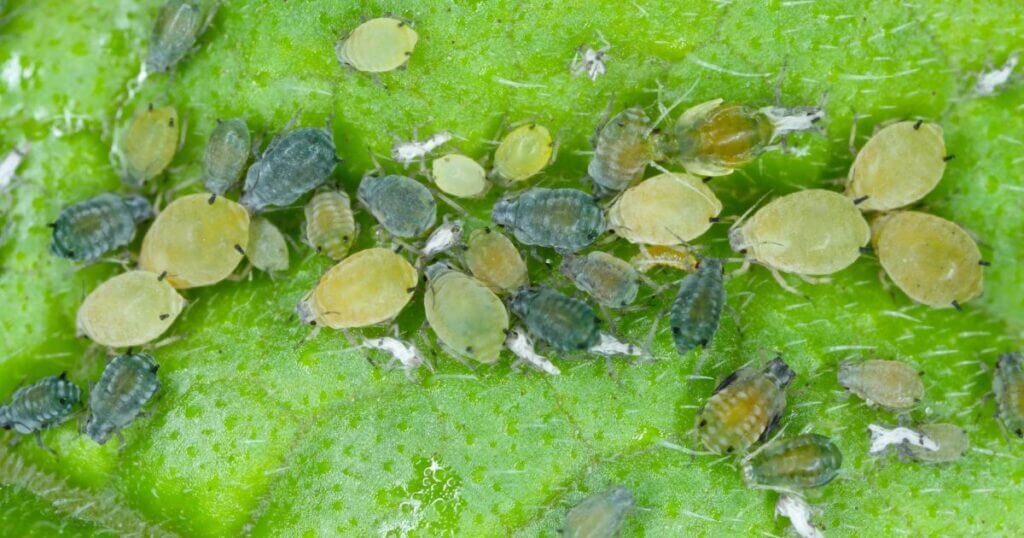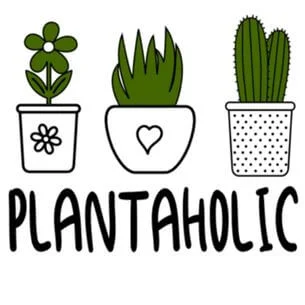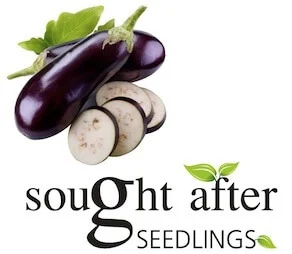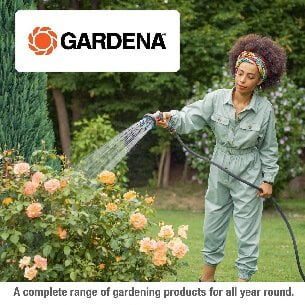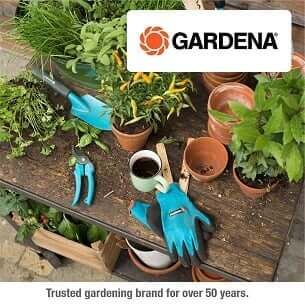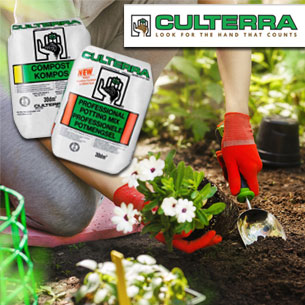How to Get Rid of Aphids On Plants In The Garden
Aphids are among the most notorious pests that gardeners face, known for their ability to rapidly colonize plants and cause significant damage. These tiny, sap-sucking insects can quickly overrun your garden, leaving a trail of weakened and stunted plants. If you’re battling an aphid infestation, this article guide you on how to get rid of aphids and will arm you with effective strategies to reclaim the health and vitality of your garden.
Understanding Aphids
Aphids are small, soft-bodied insects that come in various colors, including green, black, brown, and pink. They typically cluster on the undersides of leaves and tender plant shoots, feeding on the sap and weakening the plant. Recognizing an aphid problem early is crucial, as these pests can multiply quickly, leading to large infestations that are harder to control.
Identifying Aphid Infestation
Before diving into aphids treatment, it’s essential to confirm their presence. If you want to get rid of aphids it is probly best to firts make sure you are actualy dealing with aphids. Signs of aphids on plants include:
- Clusters of small, pear-shaped insects on stems and leaves
- Yellowing, curling, or distorted leaves
- Sticky honeydew secretion, leading to sooty mold
- Presence of ants, attracted by the honeydew
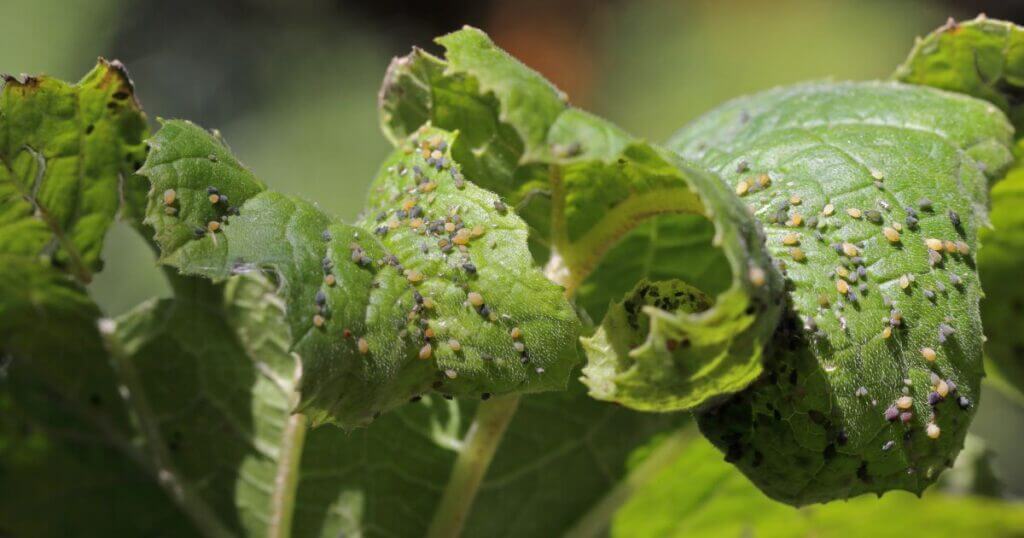
Natural Solutions to Get Rid of Aphids
Water Pressure
A simple yet effective method to dislodge aphids from your plants is to use a strong jet of water from a garden hose. This physical removal tactic doesn’t rely on chemicals, making it safe for the plant, beneficial insects, and the environment. It’s particularly useful for mild infestations and can be a first line of defense. However, for it to be effective, you might need to repeat the process several times, especially for stubborn infestations. It’s essential to target the underside of leaves where aphids often congregate.
While this method is gentle and eco-friendly, it’s crucial to ensure that the water pressure is not too strong to avoid damaging young or delicate plants. Regular monitoring after the initial application is necessary to assess whether additional treatments are needed. This approach can be combined with other methods for a more integrated pest management strategy.
Neem Oil
Neem oil is a natural pesticide extracted from the seeds of the neem tree and is renowned for its effectiveness against a variety of garden pests, including aphids. It works by interfering with the life cycle of aphids, acting as a growth regulator, and also repels them due to its strong odor. Neem oil is biodegradable and, when used correctly, poses minimal risk to beneficial insects, making it an ideal choice for organic gardening.
When applying neem oil, it’s important to follow the product’s instructions carefully, usually involving dilution with water and possibly a mild soap to aid in spreading. Application should be done during cooler parts of the day, such as early morning or late afternoon, to minimize the risk of leaf burn. Coverage should be thorough, ensuring all parts of the plant are coated, especially the undersides of leaves. Repeat applications may be necessary every 1-2 weeks until the infestation is under control.
Insecticidal Soap
Insecticidal soap is a safe and effective way to combat aphid infestations. It works on contact, targeting the soft bodies of aphids without harming the plant itself. The soap penetrates the insect’s outer layer, causing dehydration and death. It’s essential to apply the soap solution directly to the aphids, ensuring thorough coverage of the infested areas.
One of the advantages of insecticidal soap is its minimal impact on beneficial insects, as it only affects pests it directly contacts and degrades quickly in the environment. However, repeat applications may be necessary, as insecticidal soap does not have residual effects. It’s also important to test the soap solution on a small area of the plant first to ensure it does not cause damage.
Pesticides and Products To Get Rid of Aphids That Are Available in South Africa
Lorem ipsum dolor sit amet, consectetuer adipiscing elit, sed diam nonummy nibh euismod tincidunt ut laoreet dolore magna aliquam erat volutpat.
Buddi Aphids Plant Spray
The Buddi Aphids Plant Spray, available in a 200ml bottle, is an entirely organic, safe, and cannabis-compatible insecticide. Aphids, a prevalent pest in cannabis cultivation, vary in type but can be effectively controlled if detected early. It’s crucial to inspect the backside of leaves and stems for unusual brown, white, or even green spots indicative of aphid infestation. Yellowing of the plant could signal nutrient depletion by these pests, causing stress to the plant (note that this differs from thrips damage). The “Buddi” spray is designed to interrupt the aphids’ lifecycle, thereby protecting your plants.
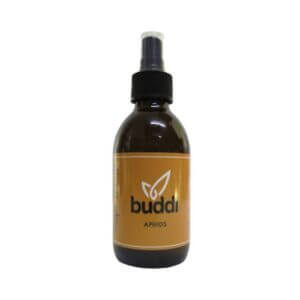
Biiogrow Pyrol Organic Pesticide
Pyrol is an organically certified pesticide designed to target a broad spectrum of destructive pests such as aphids, whiteflies, greenflies, spider mites, mealybugs, scale insects, leaf hoppers, and thrips. It’s effective against both the adult insects and their eggs and larvae, offering prolonged protection.
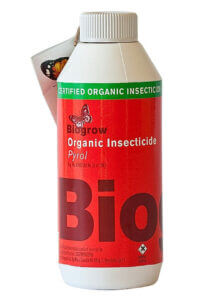
Efekto Aphicide
An emulsified concentrate insecticide that is systemic, designed for both household and garden applications.
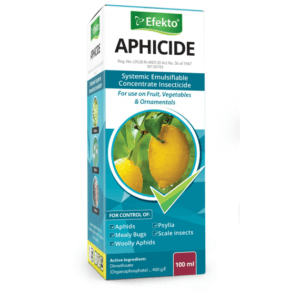
Kombat Aphids
Kombat Aphids is a versatile emulsifiable concentrate that serves as both a contact and stomach insecticide, designed to target a comprehensive array of insects in gardens, homes, and those that damage wood, as specified. Contents include one 100ml bottle of Aphids..
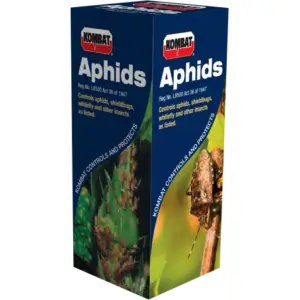
Protek Spray-Kill
A water miscible concentrate for the control of aphids, garden acrea, astylus beetle, CMR beetle, diamond-back moth, mealybug, pernicious scale, stinkbug, thrips and whitefly.
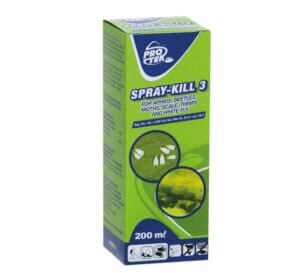
Take Note When Using Chemical Solutions to Get Rid of Aphids
For severe or persistent aphid infestations, chemical pesticides may be considered as a last resort. When selecting a pesticide, it’s crucial to choose a product specifically labeled for aphids and to follow the application instructions precisely. Chemical pesticides should be used judiciously, as they can also affect beneficial insects and have broader environmental impacts.
Spot treatments targeting only the affected areas can minimize the use of chemicals and reduce the risk to non-target species. It’s also advisable to rotate different classes of pesticides to prevent the development of resistance. Always wear protective clothing when applying chemical pesticides and avoid spraying during windy conditions to prevent drift.
For more information on Aphids read our article here: Aphids
How to Prevent Aphids
Companion Planting: A Natural Strategy in How to Get Rid of Aphids
Companion planting is a time-honored gardening technique that leverages the natural relationships between plants to enhance growth, deter pests, and encourage a healthy ecosystem. In the context of aphid management, companion planting is particularly effective, serving as a natural deterrent to these pervasive pests and a way to bolster your garden’s defenses organically.
By carefully selecting and positioning plants that aphids find repulsive or that attract aphid predators, gardeners can create a hostile environment for aphids, thereby protecting vulnerable crops. Plants like marigolds and calendula exude substances through their roots and aerial parts that aphids find off-putting, making them excellent choices for interplanting among susceptible garden vegetables and ornamentals. Garlic and chives, with their strong odors, can also repel aphids when planted around roses, fruit trees, and leafy greens.
In addition to repelling aphids, companion planting can enhance biodiversity by attracting beneficial insects. Sweet alyssum, for instance, is a magnet for hoverflies, whose larvae consume vast numbers of aphids. Planting nectar-rich flowers like zinnias and cosmos can attract ladybugs and lacewings, further bolstering your garden’s natural defense system.
Incorporating companion planting into your garden design is not only an effective strategy in how to get rid of aphids but also promotes a vibrant, healthy garden ecosystem. By understanding and utilizing the synergistic relationships between plants, gardeners can reduce their reliance on chemical pesticides, fostering a more sustainable and environmentally friendly approach to pest management.
Preventing Aphids: Proactive Measures in How to Get Rid of Aphids
Preventing aphids from becoming a significant problem in your garden begins with proactive, preventive strategies. By creating an environment that is less hospitable to aphids and more supportive of plant health and beneficial organisms, gardeners can significantly reduce the impact of aphids on their plants.
One of the key preventive measures is to ensure plant health through proper care and maintenance. Healthy plants are more resilient to pest infestations, so regular watering, mulching, and fertilizing tailored to each plant’s needs can enhance their natural defenses. Avoiding excessive nitrogen, which can promote lush but weak growth more susceptible to aphids, is particularly important.
Regular monitoring and early detection play a crucial role in aphid prevention. Inspecting plants frequently for signs of aphids or their damage can help catch infestations early when they are easier to manage. Pay special attention to the undersides of leaves, where aphids often congregate.
Introducing and preserving natural aphid predators is another cornerstone of aphid prevention. Creating a garden that attracts and sustains beneficial insects like ladybugs, lacewings, and parasitic wasps involves planting a variety of flowering plants that provide nectar and pollen throughout the season. Providing a habitat for these predators, such as undisturbed soil areas or insect hotels, can help maintain their populations.
Implementing physical barriers, such as row covers, can also be an effective preventive measure, especially for young plants or during aphid population surges. These barriers can prevent aphids from reaching the plants while still allowing light, air, and water to penetrate.
How To Get Rid Of Aphids Q & A
Popular questions on how to get rid of aphids
What is the best aphid killer?
The best aphid killer often depends on the severity of the infestation and the preferences of the gardener. Chemical insecticides can offer quick and effective results, with products containing ingredients like imidacloprid or acetamiprid being highly effective. For those preferring organic methods, neem oil and insecticidal soaps are popular choices, known for their effectiveness while being safer for beneficial insects and the environment.
Does vinegar kill aphids?
Yes, vinegar can kill aphids when used in a diluted solution. Mixing a few tablespoons of apple cider vinegar with water and spraying it directly onto the aphids can be an effective way to control minor infestations. However, caution should be exercised as the acidity of vinegar can harm plants if used excessively or in too strong a concentration.
Does soapy water get rid of aphids?
Soapy water is an effective method to get rid of aphids. A mild solution made by mixing a few drops of liquid dish soap with water can be sprayed directly onto the infested areas. The soap breaks down the aphids’ protective outer layer, causing dehydration and death. This method is safe for the plant and can be used as a gentle yet effective pest control solution.
What do aphids hate the most?
Aphids are repelled by strong scents and certain natural substances. They particularly dislike garlic, onions, chives, and strong-smelling herbs like mint, basil, and cilantro. Planting these around susceptible plants can deter aphids. Additionally, the application of neem oil, which has a strong odor and acts as an antifeedant, is also highly effective in keeping aphids at bay.
Can you permanently get rid of aphids?
Permanently getting rid of aphids is challenging due to their rapid reproduction rates and ability to develop resistance to pesticides. However, consistent management practices like introducing natural predators (like ladybugs and lacewings), using horticultural oils and soaps, and maintaining healthy garden hygiene can significantly reduce aphid populations and keep them under control.
What home remedy kills aphids on plants?
A popular home remedy for killing aphids on plants involves a mixture of water, liquid dish soap, and neem oil. The soap acts to suffocate the aphids, while neem oil offers a natural pesticidal effect. This homemade solution can be sprayed directly onto the affected areas of the plant, offering an effective and eco-friendly way to combat aphid infestations.
What is the best natural aphid killer?
Neem oil stands out as one of the best natural aphid killers. Extracted from the seeds of the neem tree, it works as both an insecticide and a repellent, disrupting the life cycle of aphids and deterring new ones from attacking the plants. It’s safe for beneficial insects, making it an ideal choice for organic gardening.
What kills aphids naturally?
Several natural substances can kill aphids, including neem oil, soapy water, and diatomaceous earth. These substances either suffocate, dehydrate, or disrupt the life cycle of the aphids without causing significant harm to the plants or beneficial insect populations.
How do you make homemade aphid killer?
To make a homemade aphid killer, mix a few drops of mild liquid dish soap with water in a spray bottle. For added effectiveness, a teaspoon of neem oil can be added. This solution can then be sprayed directly onto the aphids and the affected parts of the plant, killing the aphids without harming the plant.
What dish soap kills aphids?
Any mild, non-antibacterial liquid dish soap can be effective in killing aphids. The key is to ensure the soap is gentle and free from harsh chemicals or additives that could damage the plants. A small amount mixed with water creates a soapy solution that, when sprayed on aphids, disrupts their outer layer and leads to dehydration.
What can I spray for aphids?
For aphid control, you can spray a variety of solutions, ranging from ready-to-use insecticides to homemade remedies. Insecticidal soaps, horticultural oils, and neem oil solutions are among the most effective and eco-friendly options. These can be applied directly to the infested areas, targeting the aphids without harming the plant or beneficial insects.
What to Know More About Aphids?
Here are some good resources
HOW DO I GET RID OF APHIDS ON MY GARDEN GREENS?
COMMON GARDEN PESTS AND HOW TO GET RID OF THEM





